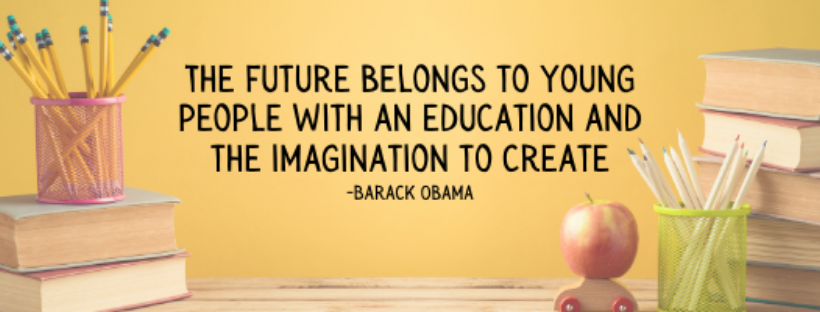
The nation was turned upside down in March 2020 when the President of the United States declared a national emergency. The COVID-19 pandemic was only beginning to sweep the world. In an effort to slow the spread of the novel coronavirus, stay-at-home orders were put in place: any operations deemed nonessential were halted, work-from-home lifestyle was adopted by many, and public education changed more drastically than it had been in the past few decades. Families were forced to adopt new ways of learning in order to continue children’s academic education. 93% of households participated in distance learning in some way since the COVID-19 pandemic.
There’s no denying that everyone had to make adjustments to help slow the spread of the coronavirus disease. I have worked directly with youth for all of my professional life, so the effects that COVID-19 would have on youth occupied my mind day in and day out. Youth and families around the country are dependent on critical and essential services provided by the public school system, and low-income households and Students of Color felt the most impact of accessibility to these resources. Youth’s education and future success are being greatly affected by these changes. We should be concerned about youths’ academic growth, social and emotional skill development, and physiological needs.
Knowledge acquisition
Social distancing regulations have created barriers for youth to receive in-person instruction from their schools. Many public K-12 schools have adopted remote learning through online resources to continue education. What does this look like? Children use technology to participate in virtual class time with their teachers and classmates. Online platforms are used to complete assignments and homework or hard copies of assignments are sent home for kids to work on independently. When I asked my friend, a mom of three grade-school children, what differences she has experienced with her children between remote learning compared to attending school in person, she said, “When I help my kids with school, it feels like we are tasking them. It doesn’t feel like there is any real learning going on; we just accomplish the task or assignment and move on to the next”. Students of Color are experiencing a loss of knowledge and education at the highest rate. Black and Hispanic students are more likely to receive low-quality remote learning. Achievement gaps will increase for low-income, Black, and Hispanic students by up to 20% because 40% of low-income students are not able to consistently participate in live instruction due to experiencing low or no internet access.
Socioemotional skill development
Learning essential social-emotional skills are important for youth’s success in life, with most learning happening before age 6, or before most children enter the 1st grade. Educational and learning environments support children in socioemotional learning, developing skills in self-awareness, self-management, social awareness, relationships, and responsible decision making. Developing these skills has many benefits to student’s academic success, such as long-term improvements in behavior, academic performance, and perception of school. I spend most of my days working at an essential child care service, helping school-aged children navigate distance learning and stay active after their school day. Without being able to interact with teachers and peers, it’s significantly challenging for youth to continue the development of these socioemotional skills. Since school has changed because of COVID, I have noticed that the same kids that I have known for years are struggling more with behavior, expressing emotions, and making friends. Here’s what they said about it…
Access to basic needs
Schools are also a major source of food services and social interactions for students. Without these resources readily available, students and their families are struggling to meet social, emotional, and physical needs. 30 million kids in the United States receive free or reduced-price meals from their schools. For many hungry children, school meals are the only nutritious meal they receive each day. Since the pandemic began and many schools across the country closed in-person instruction, only 15% of the 30 million students are receiving those meals, leaving more than 25 million kids food insecure. Lauryn Bauer, a researcher at the Brooking Institute, found that 1 in 5 families say they do not have the resources to provide sufficient food to their children. This is even more intense for low-income, Black, and Hispanic families. Research shows that healthy students tend to experience better focus levels, higher rates of work completion, and higher test scores.
What do we do now?
COVID-19 is a deadly and highly contagious disease. Although the pandemic has caused so much to change for youth development, I know that we should do everything possible to protect those most vulnerable and help to slow the spread of coronavirus. So, how can we help youth and families cope with the troubles they are experiencing? What can we do to limit the physical, emotional, and mental health consequences that our nation’s youth are experiencing? How are we ensuring that the nation’s future leaders are not falling behind?
Through my research, I have found a slim amount of resources for youth. We need to do more to help youth navigate through the immense changes brought by the COVID-19 pandemic. Schools are the exclusive provider of mental health services for 57% of K-12 youth, which has been severely limited in the past year. Children need support to cope with physical and emotional concerns, but school closures have severely limited available resources. We need to connect youth, families, and educators to available resources to help support academic growth, emotional and social skill development, and access to critical physical necessities.


